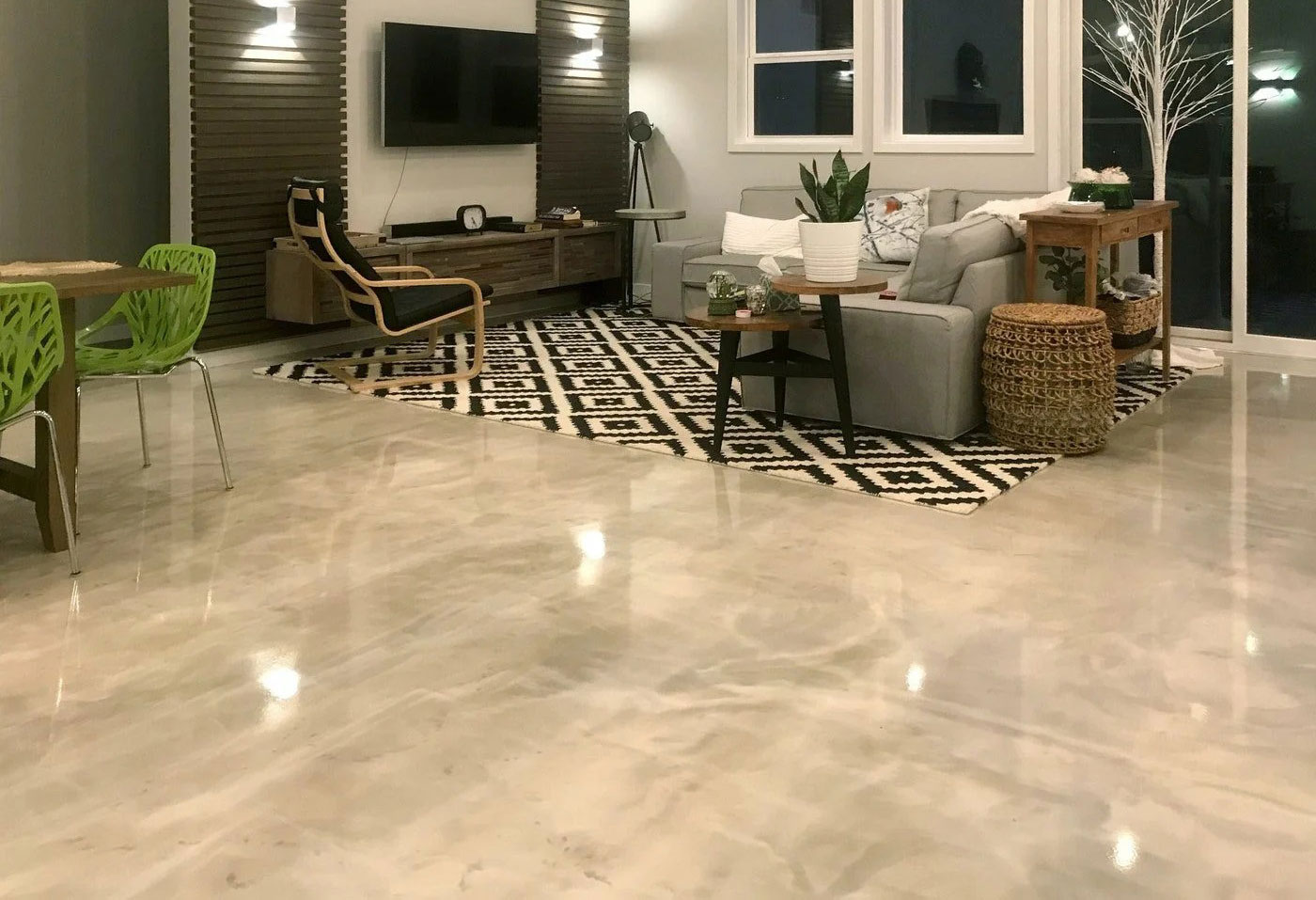
Epoxy floors are a popular choice for homes and businesses due to their durability, aesthetic appeal, and versatility. However, a common concern about epoxy flooring is its potential slipperiness. In this blog, we'll delve into the different types of local epoxy flooring in Ringwood, discuss how to minimise slipperiness, and provide practical tips to keep your floors safe and slip-free.
Epoxy flooring is a robust and versatile flooring solution known for its resilience and visual appeal. It is composed of epoxy resins and hardeners that, when combined, undergo a chemical reaction, forming a strong adhesive bond with a prepared substrate, typically concrete. This process results in a seamless, glossy surface that is highly resistant to stains, chemicals, and wear.
The installation of epoxy flooring involves several key steps. First, the concrete substrate is meticulously cleaned and prepared to ensure proper adhesion. Next, the epoxy resin and hardener are mixed in precise proportions to activate the curing process. The mixture is then applied to the substrate using a roller or squeegee to achieve an even coat. Depending on the desired finish and performance characteristics, additional layers or additives may be applied.
The curing period, during which the epoxy hardens and forms a strong bond with the substrate, can take several hours to several days, depending on factors like temperature and humidity. Once fully cured, the epoxy floor provides a durable, low-maintenance solution suitable for a variety of residential, commercial, and industrial applications across Australia.
In Australia, several types of epoxy floors are commonly used, each catering to different needs and preferences:
High-Gloss Epoxy Floors: Known for their smooth, shiny finish, these floors are popular in commercial and residential spaces seeking a modern look. They are often used in showrooms, retail spaces, and residential garages.
Metallic Epoxy Floors: These floors feature a unique metallic sheen and swirl patterns, adding sophistication to any space. They are commonly found in upscale residences, hotels, restaurants, and entertainment venues.
Anti-Slip Epoxy Floors: Designed for environments where slip resistance is crucial, such as industrial facilities, kitchens, and bathrooms, these floors provide enhanced safety without sacrificing durability.
Each type of epoxy floor serves a distinct purpose, allowing individuals and businesses to select the most suitable option for their specific needs across various settings in Australia.
Epoxy floors can become slippery when wet, posing a safety hazard in areas where water or other liquids are present. The level of slipperiness depends on factors such as the type of epoxy flooring, surface texture, and the presence of additives or coatings designed to enhance traction. Smooth, high-gloss epoxy floors are generally more slippery when wet compared to textured or anti-slip epoxy floors.
In environments where moisture levels vary, it is essential to take precautions to prevent slip accidents. Using anti-slip mats, rugs, or applying anti-slip coatings can help mitigate slip risks. Additionally, promptly cleaning up spills and ensuring proper drainage systems in areas prone to moisture buildup can contribute to a safer environment.
To prevent epoxy floors from becoming slippery, consider the following measures:
By taking these precautions, you can minimize slip risks and maintain a safe environment on your epoxy floors.
The most effective strategy to prevent dangerously slippery epoxy floors is to select the appropriate type of epoxy flooring and coating for your specific environment. Working with experienced floor resurfacing professionals in Melbourne ensures that you receive expert guidance in choosing the right epoxy flooring solution tailored to your needs. They can assess factors such as foot traffic, moisture levels, and the presence of chemicals to recommend suitable options that prioritize safety without compromising durability.
We provide a comprehensive selection of customized concrete grinding, sealing, polishing, and surface preparation services for both indoor and outdoor environments in addition to our extensive commercial grind and seal services.